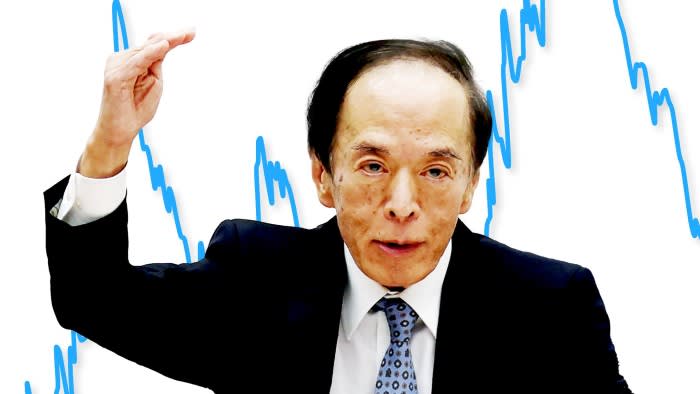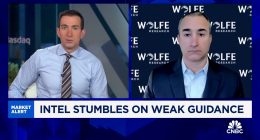Unlock the Editor’s Digest for free
Roula Khalaf, Editor of the FT, selects her favourite stories in this weekly newsletter.
The yen fell to a new 34-year low on Friday after the Bank of Japan held interest rates near zero, despite rising pressure on the central bank to tighten its policy to prop up the currency.
The Japanese currency fell to ¥156.13 against the dollar after the BoJ unanimously agreed to continue guiding its overnight interest rate within a range of about zero to 0.1 per cent.
In March, the central bank ended its negative interest rate policy, raising borrowing costs for the first time since 2007.
In the wake of this historic shift to end its ultra-loose monetary policy, governor Kazuo Ueda has indicated he would like to move gradually to raise rates. But his position has been complicated by the yen’s depreciation and signs that the US Federal Reserve will keep interest rates high to tame inflation.
“It is necessary to pay due attention to developments in financial and foreign exchange markets and their impact on Japan’s economic activity and prices,” the BoJ said in a statement on Friday.
The central bank on Friday also forecast core inflation, which excludes volatile food prices, would remain above or near its 2 per cent target for the next three years. It made no change to its plan to continue buying Japanese government bonds.
The BoJ has long struggled to maintain price rises at sustainable levels to keep the economy out of deflation. While domestic consumption remains weak, the falling yen is expected to fuel inflation in the months ahead by increasing the cost of imported goods.
Analysts expect the BoJ to raise rates in July at the earliest if the bank confirms increases in service inflation and real wages, which would help boost consumption.
“Markets remain on high alert for any indication of whether the yen’s current weakness will be interpreted as a lasting inflationary signal and invite more hawkish rhetoric from the central bank,” said Naomi Fink, global strategist at Nikko Asset Management. “The BoJ however is likelier to find any knock-on impact from yen weakness upon inflation as more concerning than short-term currency moves.”
The yen held steady at about ¥155.55 a dollar in morning trading but weakened sharply within 10 minutes of the BoJ’s announcement to leave policy unchanged. Traders had resumed bets that the US-Japan rate differential would continue to apply downward pressure on the Japanese currency.
The Nikkei 225 index briefly rose more than 1 per cent after the announcement.
Despite what many market participants see as a rising risk of direct intervention by the Japanese authorities to support the yen, analysts said the currency’s drop on Friday made sense, as the BoJ refrained from any sort of hawkish surprise.
“Ueda will have his work cut out for him at the press conference [on Friday afternoon] to avoid further yen decline,” said Benjamin Shatil, senior Japan economist at JPMorgan.
Read More: World News | Entertainment News | Celeb News
FT










